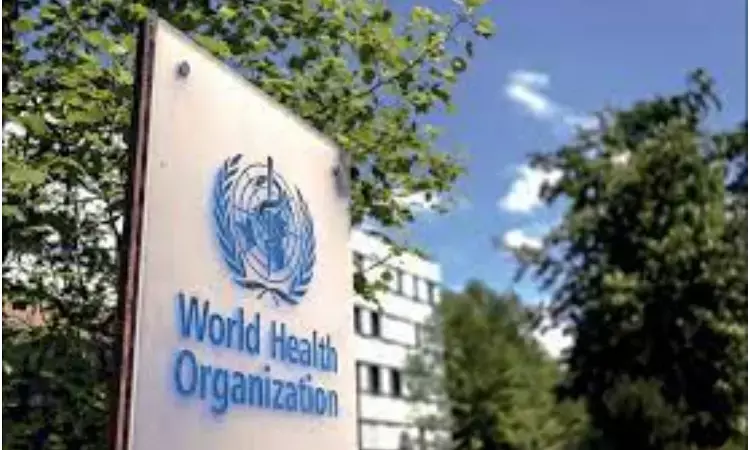- Home
- Medical news & Guidelines
- Anesthesiology
- Cardiology and CTVS
- Critical Care
- Dentistry
- Dermatology
- Diabetes and Endocrinology
- ENT
- Gastroenterology
- Medicine
- Nephrology
- Neurology
- Obstretics-Gynaecology
- Oncology
- Ophthalmology
- Orthopaedics
- Pediatrics-Neonatology
- Psychiatry
- Pulmonology
- Radiology
- Surgery
- Urology
- Laboratory Medicine
- Diet
- Nursing
- Paramedical
- Physiotherapy
- Health news
- Fact Check
- Bone Health Fact Check
- Brain Health Fact Check
- Cancer Related Fact Check
- Child Care Fact Check
- Dental and oral health fact check
- Diabetes and metabolic health fact check
- Diet and Nutrition Fact Check
- Eye and ENT Care Fact Check
- Fitness fact check
- Gut health fact check
- Heart health fact check
- Kidney health fact check
- Medical education fact check
- Men's health fact check
- Respiratory fact check
- Skin and hair care fact check
- Vaccine and Immunization fact check
- Women's health fact check
- AYUSH
- State News
- Andaman and Nicobar Islands
- Andhra Pradesh
- Arunachal Pradesh
- Assam
- Bihar
- Chandigarh
- Chattisgarh
- Dadra and Nagar Haveli
- Daman and Diu
- Delhi
- Goa
- Gujarat
- Haryana
- Himachal Pradesh
- Jammu & Kashmir
- Jharkhand
- Karnataka
- Kerala
- Ladakh
- Lakshadweep
- Madhya Pradesh
- Maharashtra
- Manipur
- Meghalaya
- Mizoram
- Nagaland
- Odisha
- Puducherry
- Punjab
- Rajasthan
- Sikkim
- Tamil Nadu
- Telangana
- Tripura
- Uttar Pradesh
- Uttrakhand
- West Bengal
- Medical Education
- Industry
COVID drug makers posting record profits, but treatment out of reach for poor, says WHO

Calling it a "moral failing" Ghebreyesus said that "we cannot accept prices that make life-saving treatments available to the rich and out of reach for the poor".
Geneva: Even as Covid drug makers are posting record profits, the lifesaving treatments often remain out of reach for the poor, the World Health Organisation said.
According to the WHO, reported cases and deaths from Covid-19 are continuing to decline globally, with reported weekly deaths at their lowest since March 2020.
"But these trends... don't tell the full story," WHO chief Tedros Adhanom Ghebreyesus said on Wednesday.
He noted that Omicron sub-variants, including the BA.4 and BA.5, are driving an increase in reported cases in the Americas and Africa.
"It's too soon to know whether these new sub-variants can cause more severe disease than other Omicron sub-variants, but early data suggest vaccination remains protective against severe disease and death," Ghebreyesus said.
As in the beginning of the pandemic, the high prices of the vaccines keep the poor out of reach of the essential jabs, he said.
While, "manufacturers are posting record profits" the WHO chief lamented that ..."low availability and high prices have led some countries to rule out buying these life-saving treatments".
Calling it a "moral failing" Ghebreyesus said that "we cannot accept prices that make life-saving treatments available to the rich and out of reach for the poor".
US drug maker Pfizer, this week, posted a revenue of $25.7 billion for the first quarter, up 77 per cent from the year-ago period. While Covid vaccine took $13.2 billion, a further $1.5bn came from Paxlovid, a Covid pill for people who are at high risk of severe disease.
Similarly, rival Moderna's first-quarter vaccine sales more than tripled at $6 billion over the same period last year, when it reported $1.7 billion in sales. The US biotech company has reported $3.66 billion in net income for the quarter, a threefold increase over the $1.2 billion it reported a year earlier. Both drugakers have also maintained their full-year sales forecast for the Covid vaccine at $21 billion.
Ghebreyesus added that the highly effective antivirals such as Pfizer's Paxlovid "are still not accessible to people in low- and middle-income countries," even as reports claim that nearly 600,000 courses of the highly effective Covid pill are piled up unused in the US.
"Coupled with low investment in early diagnosis, it is simply not acceptable that in the worst pandemic in a century, innovative treatments that can save lives are not reaching those that need them.
"We're playing with a fire that continues to burn us," he warned.
The global health body chief blamed "a combination of lack of political commitment, operational capacity problems, financial constraints and hesitancy due to misinformation and disinformation," that is limiting demand for vaccines.
Besides vaccinating at least 70 per cent of the population of every country -- including 100 per cent of the most at-risk groups, Ghebreyesus also called for boosting "testing and sequencing". He said it remains crucial to understand "how the virus is mutating" to "know what's coming next".
Read also: WHO strongly recommends Pfizer Covid pill Paxlovid
Medical Dialogues Bureau consists of a team of passionate medical/scientific writers, led by doctors and healthcare researchers. Our team efforts to bring you updated and timely news about the important happenings of the medical and healthcare sector. Our editorial team can be reached at editorial@medicaldialogues.in.


